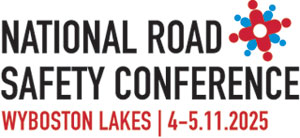First-aid for business drivers – It’s time to level up
When workers suffer critical illness or injury at work, the outcome has been shown to depend heavily on one factor: the immediate availability of first aid. In many cases, this action, in the minutes before the emergency services arrive, can be the difference between life and death.
In the event of a fixed-workplace incident, a workplace first-aider provides this response, as per the Health and Safety (First-Aid) Regulations 1981. However, at least one in three road traffic collisions (RTCs) and one in four serious-injury collisions in Britain involve someone driving for work.
While both Health and Safety and First-Aid Regulations apply equally to all workers, drivers suffering critical illness or injury on the road are far more likely to experience poorer outcomes than their non-mobile colleagues.
It is wholly impractical, if not impossible, to expect employers to make the same first-aid provision for business drivers as they do for on-site workers. But the imbalance between the two communities should and can be addressed. If individual businesses take collective responsibility for all employees, not just their own, and train a proportion of their drivers to become on-road first-aiders, achieving equality in the first-aid provision for fixed workplace and mobile workers is a realistic goal.
The opportunity to save lives is substantial.
 David Higginbottom, Chief Executive, Driver First Assist
David Higginbottom, Chief Executive, Driver First Assist
David Higginbottom has spent the whole of his professional career working in the transport and logistics industry, in compliance, health and safety, and training.
He is currently chief executive with Driver First Assist (DFA), an initiative he founded and launched at the commercial vehicle show in 2014.
DFA, supported by the emergency services, trains drivers to provide scene management and lifesaving first aid at road traffic collisions. DFA has the support of the government through the Department for Transport and delivers training to a wide range of companies and individuals, including both National Highways and DVSA.
David has an MBA from Manchester Business School and is a Chartered Fellow of the Institute of Logistics.
